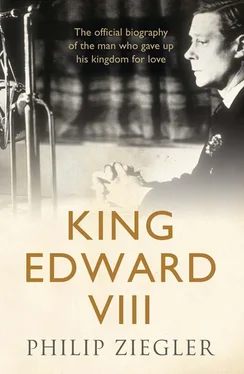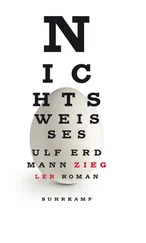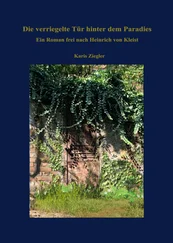The Duke and Duchess were not the only people of significance in the children’s lives. It is curious that almost all the nannies who feature in the pages of childhood memoirs are either saints or sadists. Edward had one of each. The sadist delighted in pinching him or twisting his arm just before his evening visit to his parents’ drawing room; as a result he would cry and find himself peremptorily banished. 33The saint, Charlotte ‘Lalla’ (or, to Edward, ‘Lala’) Bill, came later as nurse to Princess Mary and extended her attention to the boys. Neither had any great importance in Edward’s upbringing. More influential was the stalwart Finch, a nursery footman whose father had been in the service of the great Duke of Wellington and who shared some of that dignitary’s resolution and resourcefulness. From male nanny he stayed on to serve his master as valet and then butler, dependable, devoted, totally loyal, always respectful yet blunt sometimes to the point of rudeness. He allowed his youthful charge to take no liberties and on one occasion spanked him for teasing Lalla Bill. Edward threatened to denounce him to his father, but Lalla Bill got her story in first and insult was added to injury when the Prince was made to apologize to Finch for being such a nuisance. 34
But it was his grandparents who provided the most striking contrast to his father’s stern regime. The Prince of Wales could be quite as bad-tempered and as much a stickler for protocol as his son, and possessed a streak of meanness which was missing in the Duke of York, but to his grandchildren he was almost as indulgent as he was to himself. Edward basked in his obvious affection and endured with equanimity outbursts that would have terrified him in his father. Once he infuriated his grandfather by fidgeting at luncheon and finally knocking something off the table. ‘Damn you, boy!’ roared the Prince, smashing a melon to the floor. ‘David surveyed the debris in silence and then turned to his grandfather with an irresistibly funny expression of polite enquiry. Then the two burst out laughing.’ 35His grandmother was still less alarming. ‘We saw dear Grannie yesterday,’ Edward wrote in 1897, in a letter presumably dictated to a nursemaid, ‘and she had a funny cock and an owl which she blowed out of a pipe.’ 36With Queen Alexandra, as she was shortly to become, it was always cocks and owls and laughs and demonstrative affection.
It amused the Waleses to subvert their son’s austerity. In August 1900 the Yorks set off on an extensive imperial tour. The grandparents were left in charge, and reports were soon reaching the royal tourists of the way the children were being pampered and their education neglected. The last straw came when the woman supposed to be teaching Edward French was left behind when the family moved to Sandringham. The Duchess protested, but got little satisfaction. ‘The reason we did not take her,’ wrote Queen Alexandra, ‘was that [Doctor] Laking particularly asked that he might be left more with his brothers and sister – for a little while – as we all noticed how precautious [sic – “precocious” is presumably what she had in mind] and old-fashioned he was getting – and quite the ways of a “ single child ”! which will make him ultimately a “tiresome child” – laying down the law and thinking himself far superior to the younger ones. It did him a great deal of good – to be treated the same as Bertie …’ 37
The charge that Edward was being brought up as an only child does not seem well founded. The three elder children were much together, and, in spite of their father’s insistence on correct clothing on every occasion, enjoyed a freedom to roam the countryside on foot or bicycle which would seem enviable to contemporary princes. Edward felt protective towards his siblings; it is said that once, when he heard that his father was on the way to inspect the flower beds that they were encouraged to look after at Windsor, he covered up for his sister’s inadequacy as a gardener by running ahead and transplanting some flowers from his plot to hers. 38Lord Esher spent some time with them in 1904 and noted: ‘The youngest is the most riotous. The eldest a sort of head nurse.’ Looking through a magazine together the children chanced on a picture of Prince Edward labelled ‘Our Future King’. ‘Prince Albert at once drew attention to it – but the elder hastily brushed his brother’s finger away and turned the page. Evidently he thought it bad taste.’ 39
But outside the family his social horizons were severely limited. Occasional visits to cousins of his age was the utmost permitted him. The children of the Duke and Duchess of Fife were favoured companions. ‘He was so pleased to be with them,’ reported a governess. ‘They wanted to take his hand and he wanted to take their ball’ – an exchange which he must have felt greatly to his advantage. 40But he seems to have had no aversion to girls. ‘So dear David is precocious,’ wrote his great-aunt Augusta. ‘He was so from the first. I have a vivid and pleasing recollection of the only time I saw him this year at White Lodge, when he flirted with the nice Lady Cousins.’ 41
The Duke of York was a man of habit and, imperial tours apart, he liked the year to unroll to an unchanging pattern. In January the whole family was at York Cottage, Sandringham, the children staying on there in February and March while their parents were in London. At Easter they were reunited at York Cottage or Frogmore House, Windsor. They stayed together in London for May and June, and then in July and August the children with their mother would retreat to Frogmore while the Duke shot or yachted. September and the first half of October were spent near Balmoral; then it was back to York Cottage for the rest of the year.
York Cottage was thus as near to a permanent home as the children knew. It had been built by the Prince of Wales to hold the overflow from his vaster shooting parties and given to the Duke of York as a wedding present. The word ‘Cottage’ hardly conveys a true picture. Harold Nicolson, who must have visited it on a cold, wet day, described it as ‘a glum little villa … separated by an abrupt rim of lawn from a pond at the edge of which a leaden pelican gazes in dejection upon the water lilies and bamboos’. 42In sunnier circumstances the pond is a more than respectable lake and the life-size pelican looks contented if not exuberant. As for the glum little villa – villa perhaps, but large enough to provide today spacious estate offices, storage rooms for the Sandringham shop and five decent-sized flats. The rooms were small – the nursery being barely large enough to accommodate a medium-sized rocking horse – but the Duke liked small rooms, which reminded him of naval cabins. ‘Very nice to be in this dear wee house again,’ he wrote in his diary, and when his father offered to rent for him Lord Cholmondeley’s palace at nearby Houghton, he rejected the proposal with alacrity. As a child Edward was fond enough of its cosy and suburban comfort, as he grew older it came more and more to symbolize all that he disliked about family life.
His education was at first desultory. Reading, writing and a little history were given priority; Latin, mathematics and the sciences were eschewed; French and German were deemed essential, with enforced recitations of poems in both languages on his parents’ birthdays, turning these festivals into nightmares. ‘I am a good boy. I know a lot of German,’ Edward proudly told his father in 1901. 43He was less good when it came to French, mainly from dislike of his teacher, a podgy Alsatian lady called Hélène Bricka whom he described as ‘a dreadful old person’. 44Religious instruction, such as it was, came from Canon Dalton; it failed to enthral the young prince. Cecil Sharp, expert in folklore, song and dancing, was supposed to have taken charge of Edward’s ‘social education’ and first inspired in him a passion for ‘physical jerks’ and other forms of violent and uncomfortable exercise. 45Geography was picked up largely as a by-product of the Yorks’ travels. ‘I am very pleased to get a present from Christchurch and a whip from Tasmania,’ he wrote when his parents were in the Antipodes. ‘I know where these places are … Fancy Papa shooting peacocks.’ 46He learned the art of crochet from his mother and picked up some general knowledge from forays into the royal palaces. ‘There are such a lot of books,’ he remarked in awe after a visit to the library at Windsor. ‘I saw the first book Caxton printed. I read all about him in Arthur’s History .’ 47It was not a bad beginning, but it did not add up to the formal education required by a future king. His father knew that something more was called for, but could not convince himself that the matter was of any urgency, until January 1901 when Queen Victoria died. The Prince of Wales succeeded as King Edward VII; the Duke of York became Duke of Cornwall and ten months later added the title of Prince of Wales.
Читать дальше












